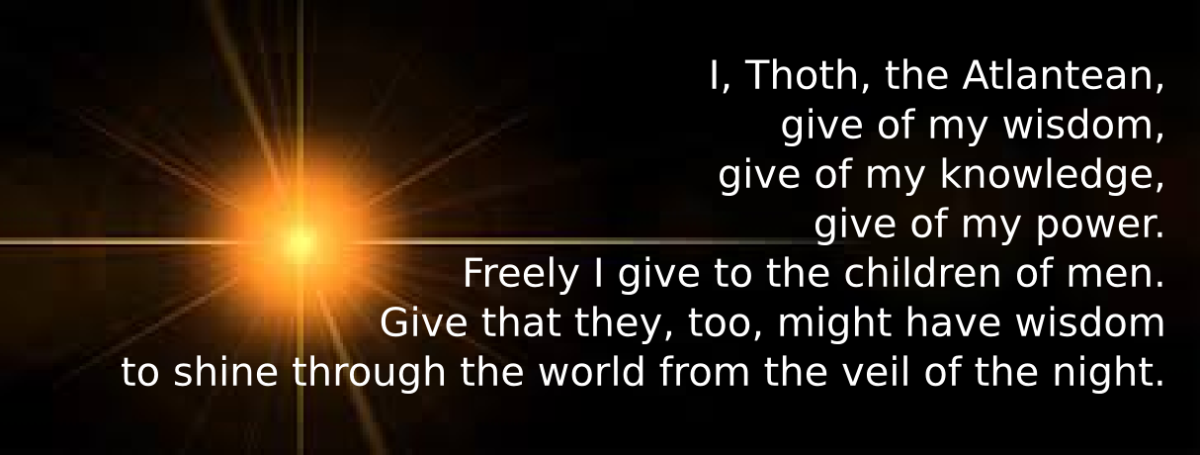The Collective Purgation of Guilt and Self-Loathing: Hate of the Individual First and then His Church
For it was a witty and truthful rejoinder which was given by a captured pirate to Alexander the Great. The king asked the fellow, “What is your idea, in infesting the sea?” And the pirate answered, with uninhibited insolence, “The same as yours, in infesting the earth! But because I do it with a tiny craft, I’m called a pirate; because you have a mighty navy, you’re called an emperor.”
St. Augustine, Concerning the City of God Against the Pagans (H. Bettenson, Tr.), Book IV, Ch. 4.

St. Augustine's Confessions and its Response to Collective Thought
I remember as a child one teacher who taught that Hitler “hypnotized” the German people and that was why millions of people were killed. Even then I was skeptical. I thought upon this in a deep way since I remember as a child I saw that all people on balance “followed” one another; so I concluded to myself that Hitler did not need to hypnotize anybody, because people are already hypnotized, living as they do in an unconscious state, which is why I was convinced at a very young age that life was a bit too “spooky” to believe my teacher held a full view of things; and why, as a result, as only a God could be witness, it pained me a great deal to see it.
As I grew older and more conscious of society’s pretenses, I wanted to shed them. I did not like groups of any kind. I did not want to conform myself to be “accepted,” but rather to be accepted for who I was. Whether it was for the fact that I was frightened by collective behavior, or whether it was for the fact that I wanted to understand myself, I was then mesmerized by psychology, captivated by sociology, and then, being disenchanted yet again with the collective thought of education on these matters, began a private search on the history of the individual. It is no surprise then that I would revisit St. Augustine’s Confessions.
I would discover that contrary to what psychologists have considered “guilt” of sex as the primary moving force behind Augustine’s conversion, is was, rather, from the absence of guilt that he would make his most memorable and famous quip, “Give me continence and chastity – but not yet!” a response to the world that was made with deliberate and pointed humor. His desire for chastity followed, not from an intangible unconscious “guilt” as psychologists proclaim, but from a “tangible” and full conscious awareness of the collective outside forces that besieged him and deprived him of his true identity. His conversion came by a crisis of the intellect. In a sense then, St. Augustine’s conversion was a two-fold conversion: a conversion of the intellect, first, and then the will. How can anyone truly know – or reject - God’s rationale and laws and His purpose for them except he or she in the experience of youth puts them to the test and is then chastised through the consequence of his experiences in his conscious life?
St. Augustine was convinced that only as an individual could man discover his true inner self and God and came to know with an absolute certainty God’s purpose for him, by necessity first, and then will, resulting in a spiritual unity with God and mystical experience of life that becomes more fruitful only when man is alone by himself and in deep contemplation of himself and motives. His sexual experiences as a boy of sixteen then were a necessary component of his conversion and were experiences that contributed to his fully conscious awareness that extroverted forces of “collectiveness,” the need to belong to a group, were the true illusions that brought only deep inward pain, suffering and spiritual death within. Without dying to oneself within, who can live?
His ability to see that his motives for sexual fulfillment and group acceptance would come at the expense of others and then shaped by others, not himself alone, is evident when he wrote, “For I heard them [his friends] boast of their disgraceful acts, and glory in them all the more, the more debased they were. There was pleasure in doing this, not only for the pleasure of the act, but also for the praise it brought. What is worthy of censure if not vice? But lest I be put to scorn, I made myself more depraved than I was. Where there was no actual deed, by which I would be on equal footing with the most abandoned, I pretended that I had done what I had not done, lest I be considered more contemptible because I was actually more innocent, and lest I be held a baser thing because more chaste than the others.”
This can hardly be written by a man consumed with guilt. On the contrary, it is in seeing his deeper motives of desire to be “accepted” that proved to be the uglier vice. And it is in the “group” that brutality and debasement became a by product of his own immature intellect and will, contributing to the “gloom” that would envelop him later. And with good reason, since how could any rational individual not feel guilty after debasing and brutalizing others unless through conscious privation or deliberately jaded conscience? Rather than look then at St. Augustine’s life as a man who felt guilty about sex, isn’t it more true to say that his “guilt” was not in sex at all but in coming to terms with the fact that he felt justifiable guilt from harming others? And isn’t it better that one come to recognize how group influences affect their behavior rather than continue blindly following the herd? Was St. Augustine guilty, or was he responsible? Should a man or woman feel “guilty” if they no longer take delight in debasing others and conforming to a group that defines their sexuality based upon group conformity? Of course not.
The life of St. Augustine becomes then the perfect antithesis of and answer to the collective individual consciousness we see today, and a good answer to the radical left’s position as terrorists of autonomy. It is also why the foundation of the Catholic Church, at least in the time of St. Augustine, which is Christianity (albeit, the purgation of the “individual” rather than the masses), is hated more than any other religion in our country now. That is because “purgation” (the act of “purging” ones dark and gloomy thoughts) can only be – as it was to St. Augustine and individuals who study psychology - an individual process, not a collective one.
As it is for most all “inward” religions like Christianity, the light that shines in the soul is also a lifelong process that grows stronger and deeper to create a union with God that is closer and everlasting. For if God is spirit – which most religions admit – why would His goal be for us to submit to collective forces that negate Him? If virtue arises out of moral restraint by “collective” forces, then for what purpose did God create man? What was the purpose of the fall from grace if it were not that the individual rid himself of pride that collective society only reinforces?
And if individualism is more “selfish” today than “collectivism,” it begs the question: What virtue is there in anything one may do that is “good” if what we do is dependent on “group” consensus? That a person “hates” or “loves” those that the group allows, is not this more selfish and terror-provoking than the love or hate of any individual to another? And if the individual lives only in conformance to group dictates, can there be any virtue bestowed upon his/her acquaintances and friends through independent selfless acts that have true meaning? As John Milton once asked, we must also ask, “What virtue is there in being just, moral, sober or continent” if the reason for possessing any of these virtues is because the group commands it?
Moreover, and with urgency even, we must ask ourselves: Is the want of power and control over individuals masking the left’s true motives? Could it be because of unconscious “guilt” that they want individualism and, therefore, Christians destroyed? Is it too challenging to face one’s own guilt inwardly and is this the reason they hate religion? If they do not believe in religion – and many individuals do not – why do “collectives” (the radical left) feel a need to annihilate the individual and, therefore, the Christian? Does their hate evidence that God does not exist, or does it, rather, evidence they have doubts about His existence? If one does not believe in God at all, why hate those that do? Moreover, are their efforts to make everyone think and be the same evidence of an unconscious projection of guilt? Above all, how can they believe that their own movement is not in fact a religion that mimics the former religion they so adamantly rival against?
The evidence for this can perhaps best be described by Carl Jung, the psychologist, who wrote in his piece on Psychology and Religion, in reflection, during a time of crisis in Europe prior to World War II and the rise of fascism in Germany, “Consciousness can hardly exist in a state of complete projection [like a society operating under “State” authority]. At most it would be a heap of emotions…Instead the common man suffers from a hybris of consciousness that borders on the pathological. This psychic condition (which he called “psychic sickness”) in the individual corresponds by and large to the hypertrophy and totalitarian pretensions of the idealized State” - which about sums up the collective construct we individuals are forced to live today (constructed by a heap of emotions), and sums up also what the “radical” politic of the left loves to exploit in the undifferentiated, unthinking masses for power and power only.
Why then is this collective mindset forming? What happened? Was it simply our concept of “moral” responsibility dissolving that caused it? I believe, absent what was “moral” years ago, the virtues of “doing one’s own thing” that was touted as the prerequisite to inner fulfillment was probably, and ironically, the time when the seeds of collectivism were first sown. That is because “doing one’s own thing” was something few did alone. In other words, it is when individuality began to dissolve that “morality” began dissolving soon after.
It is also during that period what spurned the sexual revolution, which we can now admit was a collective search for meaning of virtue, “true love,” sexual and otherwise, which we know now cannot be experienced “collectively.” That is because, even at that time, the movement itself was spurned by disdain for the individual – arising, I believe, out of an unconscious attempt by a people to project their own guilt about sex on to the masses in order to alleviate and deny individual responsibility and to purge upon society their own inner demons, rather than work against them alone. As long as everyone else was doing it, it was then supposed it could not be bad at all. If a large enough group is doing it, how wrong can it be became the question? Gone at that moment, it would seem was the virtue of “the God” within man, and the stuff of heroes in literature and in all the individuation that gave rise to Western Civilization.
And gone too was true love, or at least a belief in it. Surely people can see in our present-day “collective” population a people absent of love and true friends; and also shallow philosophies, brittle and dry business dealings and the sacred and profane consequences of “inward” conflicts that necessitates collective action; and why collectivism always results in terrorism and fatalistic individual visions whose consequences we have seen frequently in news reports, i.e. the Columbine massacre and other similar tragedies. [Certainly children are not immune from the experience of group acceptance and rejection, but notice that children today are the ones reflecting back to our minds-eye the consequences of “collectivism,” when they retaliate in defiance against a lack of acceptance from a larger group that is hostile to queer individuals and “outsiders.” The response to this dilemma from the radical left is to “collectively” take action, but the response fails miserably when in all things the emphasis in education is on “being accepted” by the larger group, rather than in cultivating an appreciation for the individual, as though children are not conscious of autonomy, which we know is a dangerous lie. Why should a child respect the differences in humanity if the only reward is acceptance to a group theology that does not respect them? Rather, collective education of “group tolerance” does more to shape the terrorist rather than lose him.]
All of these collective projections containing guilt or failure are “unconscious” projections that keep individuals in collective forces from seeing their personal “shadow,” blinding them to the concern for living and the life in it because collective personalities rely heavily on others acceptance – a depersonalized collective kind – of them. Collectivism is, therefore, the result of the absence of thinking or conscience, even of will. It is therefore a wholly “tribal” and “primitive” construct, not “progressive” like the radical liberals want us to believe. It is why in these days we must more than at any other time in history emphasize the importance of the individual.
That the individual does not, and will not, take guilt upon him/herself is a noticeable and admirable trait of his/her personality, enough to provoke jealousy from the radical left, which is why, I believe, religion has become the “enemy” to the collective, and the reason why in particular the Christian is hated above all other “religions.” That is because Christianity demands non-conformance to social idolatries and “religions” in the barest of its interpretations. Christianity is not religion. Jesus Christ abhorred religion. But to the extent the church remains a “body of believers” that extols the virtues of individualism, than all individuals must renounce “collectivism” and collective forces. The experience of the individual and his/her search for meaning in relativistic or existential quarters, though they can be an experience by the Christian also, cannot, should not, and will not replace his/her individuality. Guilt, then, for the Christian is only devastating when it becomes shared in the “collective” sense, shared as it is, for example, by the radical left today. Nietzsche’s exclamation that “God is dead” is just as true today as when he first stated it when the experience of God became collective in Europe.
The German people were not hypnotized. They were living as a “collectivized” unit in much the same way we see our country transforming itself into today. They were and are no different than we are, and it remains devastating to me, just like it did when I was a child, to be brought into that face of evil once again. Only now, it is upfront and personal, because I am an individual and a Christian and I am hated collectively for being so and living in a country unconscious of what is going on because there are too few individuals left in it. God help us all.
© 2012 Cynthia Taggart






